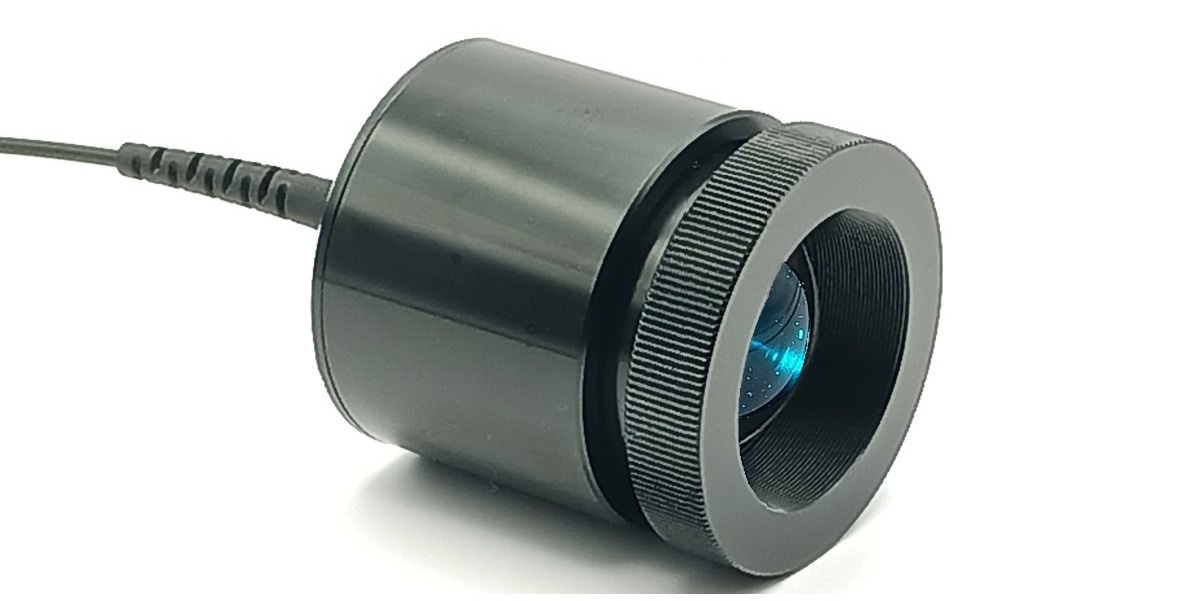LumeDEL LLC introduces fiberoptic collimating lenses optimized for fiberoptic patch cords with high numerical aperture (NA) up to 0.63. Very high NA, multimode optical fibers provide the best optical coupling efficiency with LEDs to deliver maximum output power. Standard fiberoptic collimators are designed for low NA optical fibers, like NA 0.22, which results in significant power loss if used with high NA optical fibers.

Image Credit: LumeDEL LLC
Collimated beams are very useful in laboratory setups with fiber-coupled LEDs, because the beam diameter remains fairly constant to work with other optical components and avoid excessive beam expansion.
LumeDEL offers two models using high NA aspheric lenses, the CL12G with a lens diameter of 12.5 mm and the CL30G with a lens diameter of 30 mm. Both feature an SMA905 connector and user adjustable focus to get the best beam collimation at the operating LED wavelength. The lens material is molded glass and can function over a wide spectral range of 350 – 2000 nm.
The NewDEL™ product line of fiber-coupled LEDs includes 17 narrowband models with peak wavelengths from the UV to the near-IR spectral regions as well as three different broadband LED sources. In addition to the collimating lenses, LumeDEL offers other product accessories such as fiberoptic patch cords, filter holders and mounting hardware that complement all NewDEL fiber-coupled LEDs.